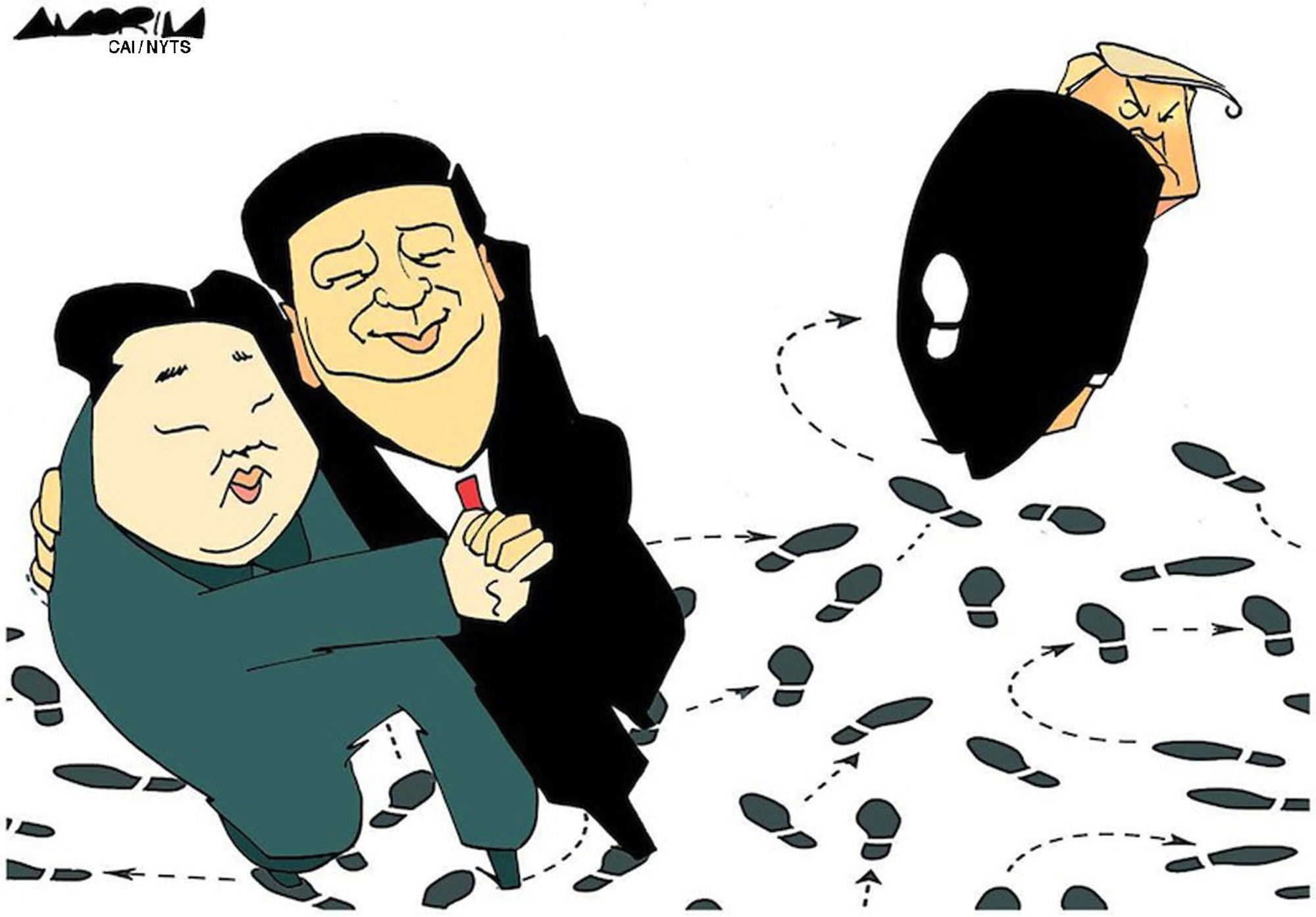During the run-up to last week's Trump-Kim summit in Singapore, China was petrified that its closest ally and neighbor, North Korea, could pivot toward political orbit of the United States in exchange for economic aid and security guarantees.
Beijing's fear was grounded in its own past experience: that China itself has a record of flipping its allegiance with the Soviet Union and pivoting toward better relations with the U.S. In spite of being socialist comrades with Moscow for 25 years after World War II, Beijing tilted toward the U.S. to balance Soviet hubris and increasing bellicosity.
In 1972, top-level diplomats of both countries engineered a summit between the arch-anticommunist U.S. President Richard Nixon and Chinese leader Mao Zedong, resulting in a fundamental reorientation of Sino-U.S. relations. This "Nixon moment" shifted the Cold War in favor of the U.S.-led West — and laid the capitalist seeds for China's phenomenal economic growth by opening the country to investment from the outside world.



















With your current subscription plan you can comment on stories. However, before writing your first comment, please create a display name in the Profile section of your subscriber account page.